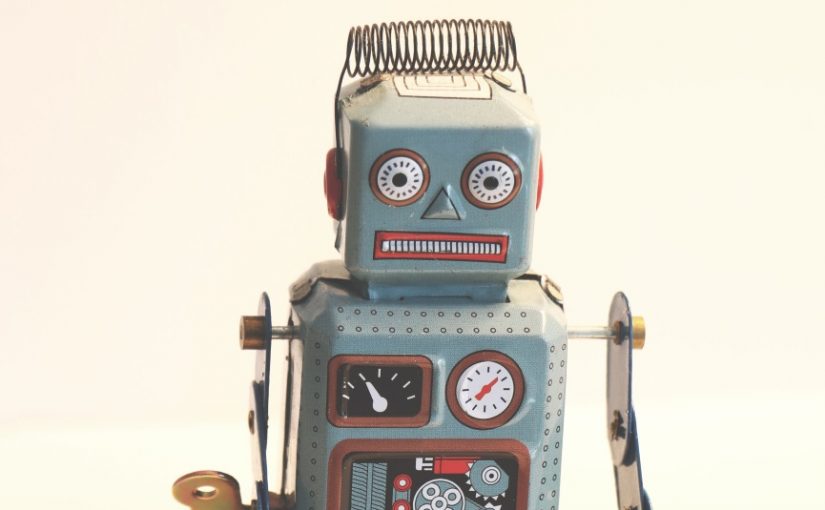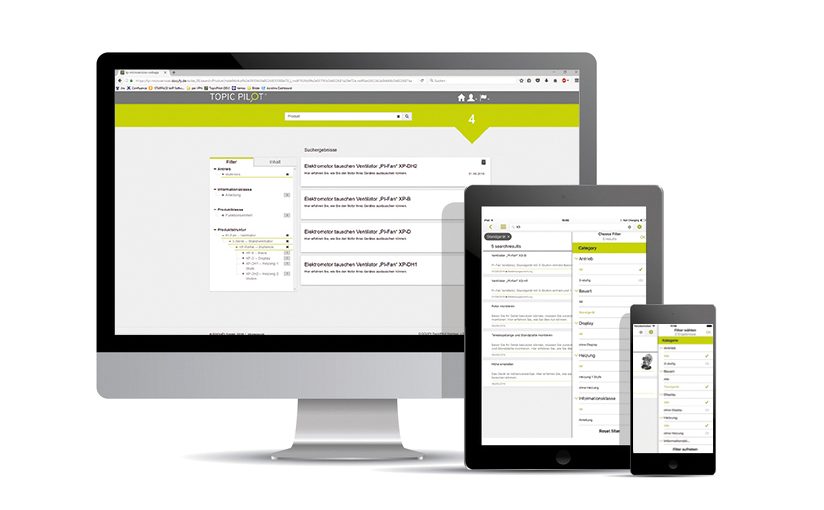The ii-Blog (intelligent information blog of tekom) has called for a blog parade. Topic: How will intelligent information shape our future? – Melanie Kunas from DOCUFY outlines her future scenarios.
Robots that take on care tasks. Computers that write football match reports, trade stocks or clarify legal doubts – what sounded like a fantasy a few years ago has long since become reality. What happens next with Industry 4.0, Artificial Intelligence and Robotics? And what could my typical everyday life look like in the digital future?
My daily digital routine
Today we already use intelligent information in the context of digitization, big data and robotics. And this development has a great impact on our working world. Many company representatives and scientists are optimistic: they see the technological possibilities as an opportunity for better working conditions for many.
I have a normal office job. Maybe I’ve seen too many science fiction movies, but imagine working in a “virtual office” in the future. I am sitting at home, but thanks to VR glasses my colleagues and I are still “present” in the offices. Telephone conferences that mainly consist of sentences such as: “Excuse me? I hardly understand you”, are passé. The traffic in the big cities and even the air traffic decreases clearly. And if I do have to go into town, I take a self-propelled electric city bus.
Intelligent information as the basis for tomorrow’s production facility
Current trends such as digitalisation and industry 4.0 are already influencing many areas of life today, both private and professional. The lubricant for the digitized world is intelligent information. This is information that is enriched with metadata in such a way that it becomes more readily available and more meaningful. They are indispensable if the information user is to be able to find the right information in the context of his current use virtually automatically. The creation of intelligent information can succeed with the concept of the information space.
In industry today, almost all areas are equipped with digital technology and intelligent information. This development is summarized under the term Industry 4.0. Behind this lies the idea that in the factory of the future all machines, computers and robots are intelligently networked with each other. The term for this is: Smart Factory. It should regulate production independently, autonomously and individually. Many companies are already using industrial 4.0 applications, such as sensor systems, big data analyses or 3D printing, today. If these systems were interlinked, the next stage of digitization would be reached.
We make the world the way we like it
This means that in the near future I will not only be able to individually configure my car and my sports shoe to suit my mood, but also almost all the consumer goods that surround me: my fridge, my shirt blouse dress, my smartphone. And because all my devices communicate with each other, my refrigerator knows from my smartphone where I prefer to buy my oat milk and can order supplies. My smartphone knows from the washing machine that I haven’t been running for a long time and exhorts me to do more exercise. My tumble dryer orders a new fluff filter on its own. My dishwasher sends me an overview of the nutrients it receives on the phone, which it calculates from the food leftovers on the plates, color-coded with the nutrient traffic light: Green: everything’s fine; Red: everything’s crap. Sometimes I prefer to rinse by hand…
Well, maybe that’s a little exaggerated and scary. But in fact, the development towards the Smart Factory is being driven by consumer buying behavior. The proportion of individual products is growing all the time. The individual product, has become the norm. A company that can’t serve this is no longer competitive, especially in highly developed countries. Automation technology, upgraded with artificial intelligence, could solve the challenge of individualized production.
Artificial intelligence as a motor for industry 4.0
Because computers and robots are performing more and more tasks, working hours are generally reduced to 20 hours for each and every employee – with the same pay. I have the afternoon off and can devote myself to my hobbies: Origami in Japan, cooking in Paris – VR makes it possible. If my children can’t get on with their homework, they ask Siri. She doesn’t just deliver the right results, she knows where there are gaps in knowledge and offers material for the children.
Because children also have to move in reality, our hydrogen car drives them autonomously in the afternoon to football (football never dies!) and hockey. The music teacher, however, doesn’t come by personally; practice lessons take place in virtual reality. And when she has no time, Siri practices violin and clarinet with the children.
Computer programs that are capable of processing particularly complex information and that can even learn to do so have been around for a long time. They win every game of chess, compose pieces of music or discover tumors on X-ray images. These computer programs are summarized as artificial intelligence (AI). AI already plays a major role today: in language assistants such as Siri and Alexa, in intelligent braking systems and in care robots. The rapid progress in the field of AI can be traced back to “Big Data”. These are enormous mountains of data that can be used to train and optimize learning systems.
More and more companies are investing in autonomous systems, e.g. in process chains for production or in robots. The development in the field of artificial intelligence and the rapid growth of digital technology are the conditions under which industry 4.0 is not a castle in the air, but the real future of our working world.
Brave new world?
I’m not yet sure whether the scenarios will make me afraid or hopeful. I think the development (apart from my sci-fi brain twists ) is unstoppable. And it’s up to us to make the most of the new technologies: Perhaps Industry 4.0 will help to compensate for the shortage of skilled workers. Perhaps digitization will not only make room for profit and process optimization, but also for the creative and social. At least that’s a good idea!
You can read here how information can quickly become intelligent in your company and how digitisation can succeed. And how the Technical Documentation department deals with it is explained here.
And what do you think? Have you already thought about the working world of tomorrow? Are you more worried? Do you see more opportunities?




